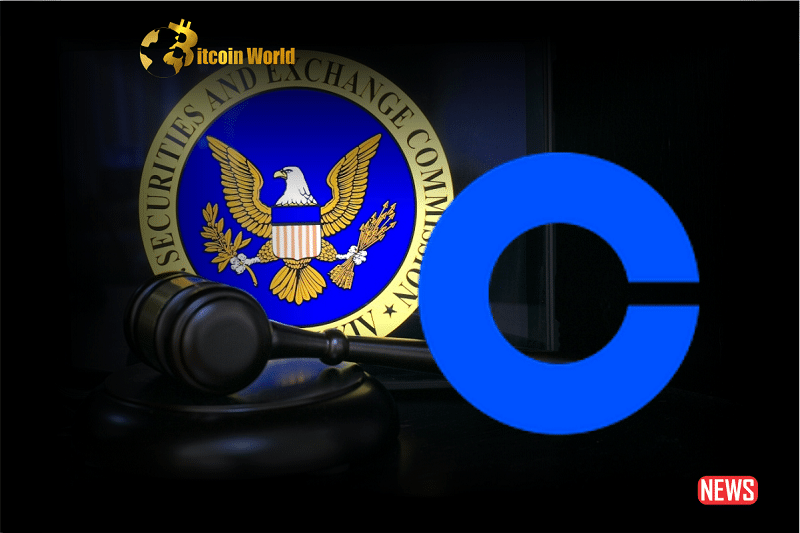The world of cryptocurrency is no stranger to regulatory hurdles, but the recent developments between Coinbase and the U.S. Securities and Exchange Commission (SEC) have sent ripples through the industry. Imagine spending months in discussions, hoping to find common ground, only to be met with silence. That’s the situation Coinbase found itself in, according to their Chief Legal Officer, Paul Grewal.
Why is the SEC Taking Action Against Coinbase?
During a House Agriculture Committee hearing, Grewal dropped a bombshell: despite extensive talks about registering with the SEC, the agency offered no response or even a counter-proposal. This revelation came hot on the heels of the SEC charging Coinbase for allegedly operating as an unregistered exchange, broker, or clearing agency. It’s like being told you’re playing a game without knowing the rules, and then being penalized for it.
The SEC’s stance, outlined in their press release, is that Coinbase needed to register given the nature of its operations. Adding fuel to the fire, a coalition of state regulators isn’t letting up either.
The Multi-State Regulatory Front: What’s the Issue?
A task force spanning ten states – Alabama, California, Illinois, Kentucky, Maryland, New Jersey, South Carolina, Vermont, Washington, and Wisconsin – is also targeting Coinbase. Their focus? The platform’s staking rewards program. According to the Alabama Securities Commission, this program needs to be properly registered in their state.
- The Core Concern: Protecting consumers and investors in the burgeoning world of decentralized finance.
- Alabama’s Perspective: Ensuring investors in crypto assets have the same legal safeguards and awareness of risks as in traditional finance.
Amanda Senn, the Director of the Alabama Securities Commission, articulated this point clearly, emphasizing the need for equal legal protection in the decentralized finance space.
Coinbase’s Response: Taking the Fight to the Courts?
Coinbase CEO Brian Armstrong didn’t mince words when addressing the SEC’s charges. He took to Twitter, a modern-day battleground for public discourse, to voice his frustration with the SEC’s approach. Armstrong labeled it “regulation by enforcement,” a strategy he believes is harmful to the United States’ position in the global financial landscape.
Here’s the crux of Coinbase’s argument:
- Frustration with the SEC’s Approach: Coinbase feels they’re being penalized without clear guidelines.
- Willingness to Engage: Despite the current conflict, Coinbase maintains they were actively seeking clarity through registration discussions.
- Prepared for Legal Action: Armstrong made it clear that Coinbase is ready to fight this battle in court if necessary.
What Does This Mean for the Future of Crypto Regulation?
The clash between Coinbase and the SEC highlights a fundamental challenge in the crypto space: the lack of clear and consistent regulatory frameworks. This situation raises several important questions:
- Is “regulation by enforcement” an effective strategy? Critics argue it stifles innovation and creates uncertainty.
- How can crypto companies navigate the current regulatory landscape? The lack of clear guidelines makes compliance a significant hurdle.
- What role will the courts play in defining crypto regulations? Coinbase’s willingness to litigate suggests the judiciary might become a key player in shaping the future of crypto regulation.
While the SEC focuses on investor protection and ensuring compliance with existing securities laws, companies like Coinbase argue for clearer rules of the road. The current situation underscores the tension between fostering innovation and mitigating risks in the rapidly evolving world of digital assets.
Key Takeaways: Navigating the Crypto Regulatory Maze
The Coinbase saga offers several crucial insights for anyone involved in or observing the cryptocurrency industry:
- Communication is Key, But Not Always Effective: Coinbase’s experience shows that even months of discussions don’t guarantee regulatory clarity.
- State and Federal Scrutiny: Crypto platforms face regulatory pressure from multiple levels of government.
- The Definition of Securities Remains a Hot Topic: The core of the SEC’s argument lies in classifying certain crypto assets as securities, a point of contention within the industry.
- Legal Battles Are Likely: As Brian Armstrong indicated, the courts may become the ultimate arbiter in these regulatory disputes.
In Conclusion: A Defining Moment for Crypto Regulation
The standoff between Coinbase and the SEC is more than just a company-specific issue. It’s a bellwether for the future of cryptocurrency regulation in the United States. The lack of a response from the SEC after months of discussions paints a picture of a regulatory landscape still grappling with how to approach digital assets. Whether through further dialogue, legislative action, or courtroom battles, the resolution of this conflict will undoubtedly shape the trajectory of the crypto industry for years to come. The silence may be deafening now, but the legal proceedings that may follow are sure to spark a loud and important conversation.
Disclaimer: The information provided is not trading advice, Bitcoinworld.co.in holds no liability for any investments made based on the information provided on this page. We strongly recommend independent research and/or consultation with a qualified professional before making any investment decisions.


